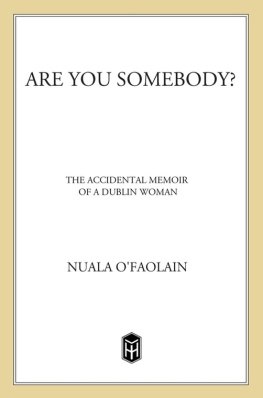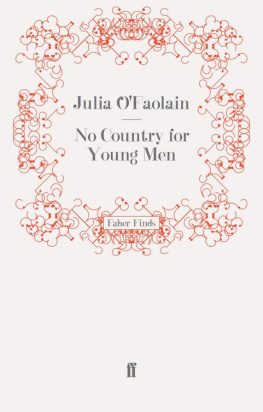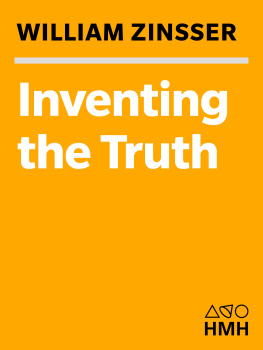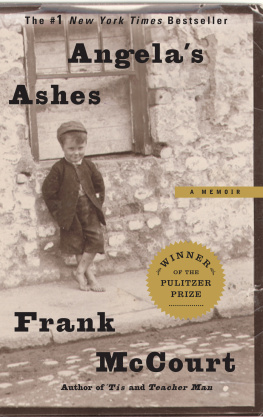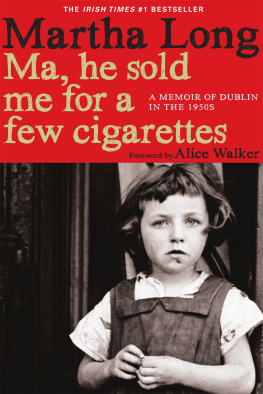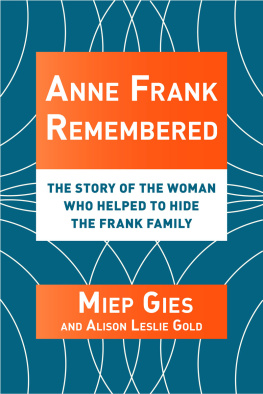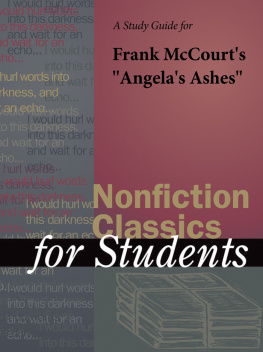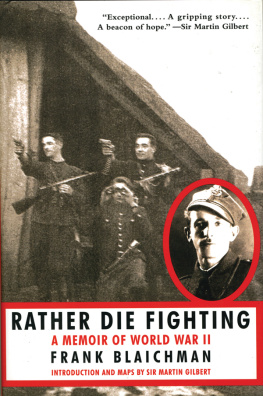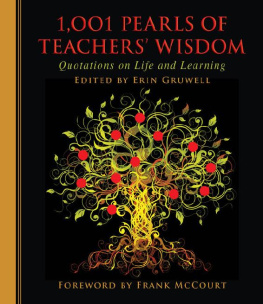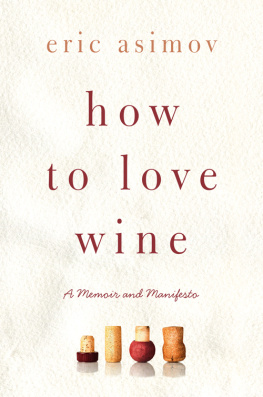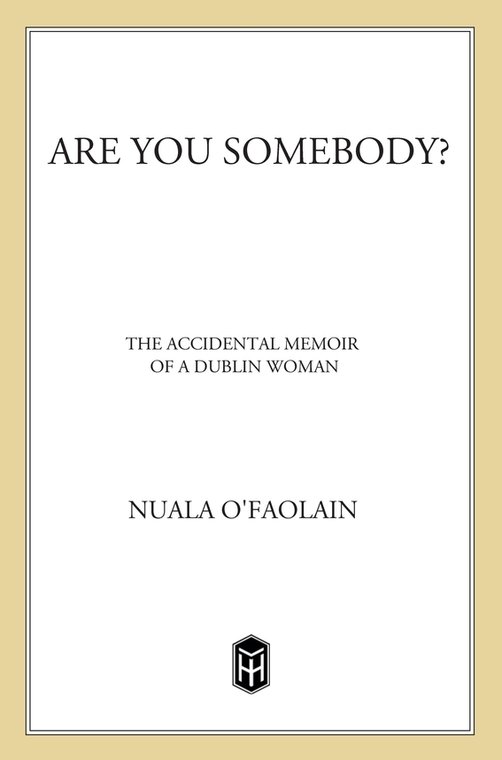NUALA OFAOLAIN was a waitress, sales clerk, and maid; a university lecturer; a TV producer; and a columnist with The Irish Times. The author of three consecutive New York Times bestsellers, her books include the memoir Almost There, a follow-up to Are You Somebody?, as well as two novels: My Dream of You and The Story of Chicago May. She died in Dublin in 2008.
That was how one Christmas Day ended. By the next Christmas that account of my lifewritten just for myself, as a sorting-out of myselfhad changed everything. It itself had filled the emptiness that had seemed to be certainly waiting for me.
It is the twist in the tail of my story that the book was an instant best-seller. More than a best-selleran emotional episode, somehow, in public life, in Ireland. It meant so much to some of its readers that when I went to bookshops to sign copiesa thing I had never in my life imagined doingthe event wasnt like something literary. It was as if we were already intimates, the people who came to the signings and myself. For a while, even, after Id talked about the book on television, I had hardly been able to walk through Dublin between my house and the newspaper office, because people jumped out of cars to hug me, or stopped me to tell me about themselves, or ran after me to say that if Id wait a minute theyd go into a shop and buy a copy, so I could write my name on it.
It lasted half a year, the disturbance surrounding publication. At last, the week before Easter, Are You Somebody? was replaced at the top of the best-seller list by someone elses book, after twenty weeks at number one. That day, Good Fridaythe day I saw in the paper that it had begun to fadeI felt permitted to go back to private life. To going up anddown the streets in my anonymous coat, looking at this or that. By then I accepted that something out of the ordinary had happened. My headlong account of myself had been reprinted over and over again. But what had changed for me hadnt to do with numbers sold. It was that what I had thought was merely personal had turned out to have meaning for other people. That was what I had to absorb.
Something had happened between this particular book and the people who sought it out. Even though, when I was sitting at the kitchen table putting words on the story, I had hardly thought of readers. I never had an image in my head of a person reading a book with my name on it. But the readers insisted on my seeing them. They offered me images of themselves in notes pushed through my door, in letters to me at the newspaper, in letters to my home, letters to me at the publishers. Hundreds and hundreds of letters. Yes, even one from a trekkers hut in Nepal. From kitchens and bedrooms and fireside chairs where men and women unknown to me had sat all nightin a sense with mereading me. Letters came from Trinidad and Australia and China and Chicago. And from Rome, from a Jesuit Id once known, whod read my book in between hearing confessions.
I had my weekly afternoon of presence (CONFESSORE, DIREZIONE SPIRITUALE, says the notice over the desk) in the corner of the church of the biggest university in Europe. I used every free minute from the talkative young Italians (who do like to confess and explore faith and other areas especially with a foreigner) to continue reading your story.
Letters came from people who painted pictures I sometimes found it hard to look at:
I read a little of your book every nightit is part of my family ritual. My youngest daughter, five months old, goes to bed (on a good night) around 8:30 p.m. I curl her little body into mine, putthe quilt over her so it is dark for her, breast-feed her, and I hold your book in my free hand and I read it.
I never envisaged such cherishing. When I called my memoir Are You Somebody? it was largely to preempt the hostile people whod say, at my writing anything about myself at all, Who does she think she is? I never imagined awakening something a bit like love.
I do feel that somewhere within the meanings of the word love is the word for what happened. That Easter week, on the Good Friday, walking home from the centre of Dublin, I went into the old-fashioned Catholic church I pass every day, partly to pay my respects to Christianity and partly to try to draw a line under this part of my life. Theres ample room for thinking in those huge churches, which are shells until theyre filled by the faith of the people. A priest was putting a gaggle of small boys through a rehearsal of some ceremony: The candle gets carried out there, the book is fetched now, then you cross over behind the altar . Ecclesiastical housework. Above their scurrying and whispering the tabernacle stood open. God was absent. In occlusion. Down in the underworld. But tomorrow He would rise again and irradiate the creation with His love. I tried to imagine it. Being loved. Someone knowing me, but loving me completely. Enough to die for me. I tried to be exact about what it was that had been offered to me by the people whod written to me, if it wasnt a kind of love.
A formidable woman to whom Id sent a copy of the book early onI dont think she would have chosen to read ithad replied, I have no doubt your account has given many people permission to feel good about themselves. I was chilled by such distancing. But I came to see that she was right. The telling out of pain, which is what a great many of the letters were, and the feeling of warmth towards me were part of one and the same impulse. This is typical:
I married and when he was thirty-three he had an affair, while I continued on because I had no money and I wanted the childrento have two parents. I nursed him for five years with bone cancer and I am alone now. I passed you once, you wheeled a bike near Trinity, in a fur coat. I whispered, I admire you so much.
This is exactly as the woman wrote it: the compressed life-story and the praise of me happen in the same breath. It seemed to me that I was being praised only because, though she recognised her own self-sacrifice, she was unable to praise herself for it. But then Id think that maybe shed read my journalism and seen me on television and really did admire me, and that it was I who could not accept praise.
Sometimes I could more clearly see that it was Ireland at the end of the twentieth century which was stirring. Hitherto silent voices within it were just on the brink of speaking out. I was just slightly aheadjust enough to be seen as a leader.
I am a seventy-year-old grandmother from County Armagh who shared that reality or unreality of an alcoholic mother who was talented and beloved . Keep up your brave heart. You have a mission to say what we the inarticulate or the hereditary hesitant feel and think.
I would pause, troubled, at a letter like this. She was projecting onto me the bravery it would take on her part to speak out. But it hadnt taken that bravery on my part. I wasnt knitted into society by grandchildren. In fact, as I had gone along, writing my memoir, twoI see now, contradictoryphrases repeated themselves in my head. One was, Sure, no one will see it, and the other was, What have I to lose, anyway?
Male readers rang me, rather than wrote. They mostly rang anonymously, just to make contact, telling me nothing about themselves, though some did write long revelatory letters about alcoholism, sexual disappointment, loneliness within marriage, brutalities done to them in the home and at school. But mostly it was women who talked to me as if we were best friends. Very young women, like this one:
An obscure sense of shame at being femalewhich I didnt even know was thereis dislodging itself in me. I wish I could give you something in return. All I have to offer is gratitude. P.S. Actually, I do have more to offer. Do you know all Alice Munros books? If not, I would like to get you one, as a present.

